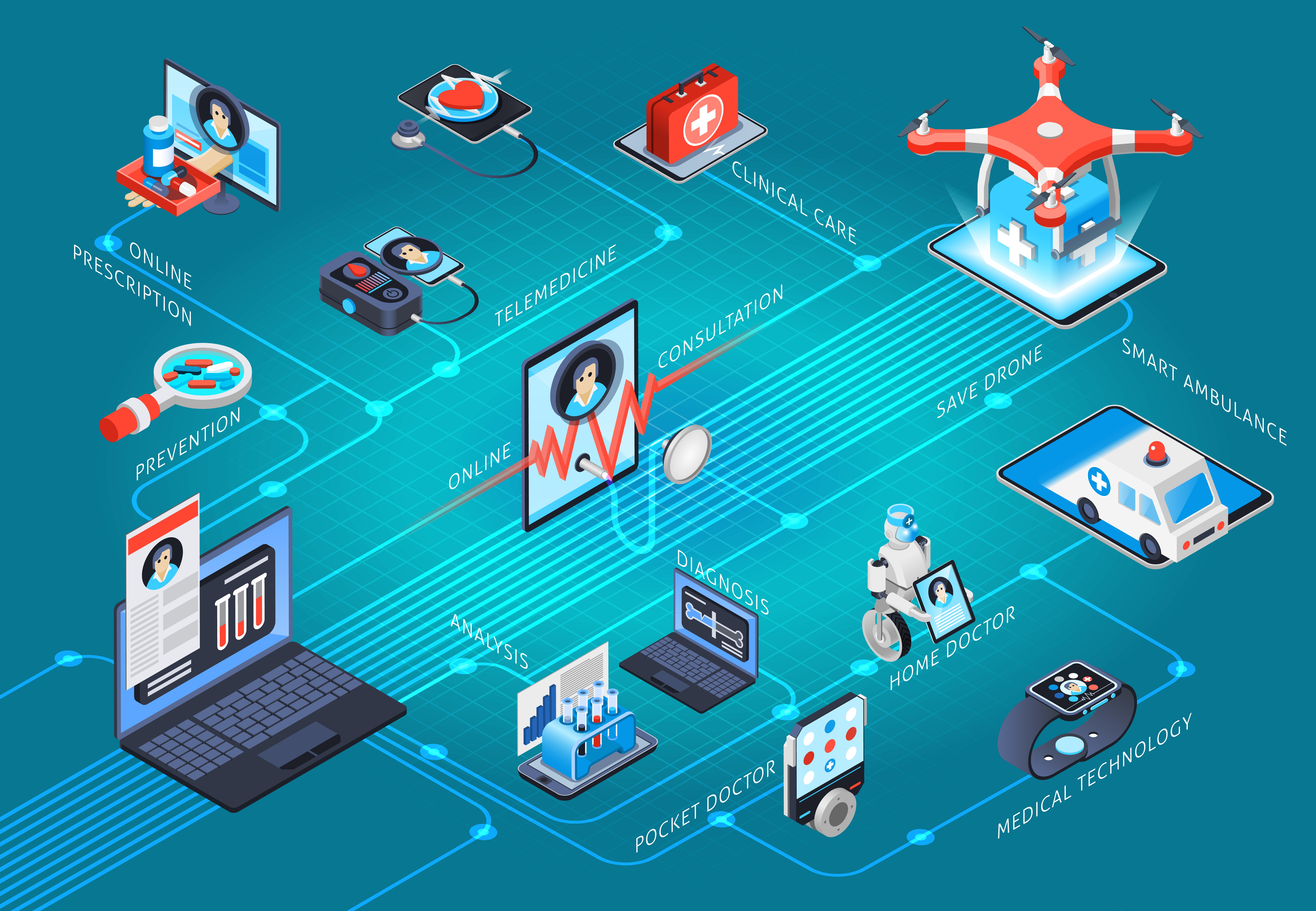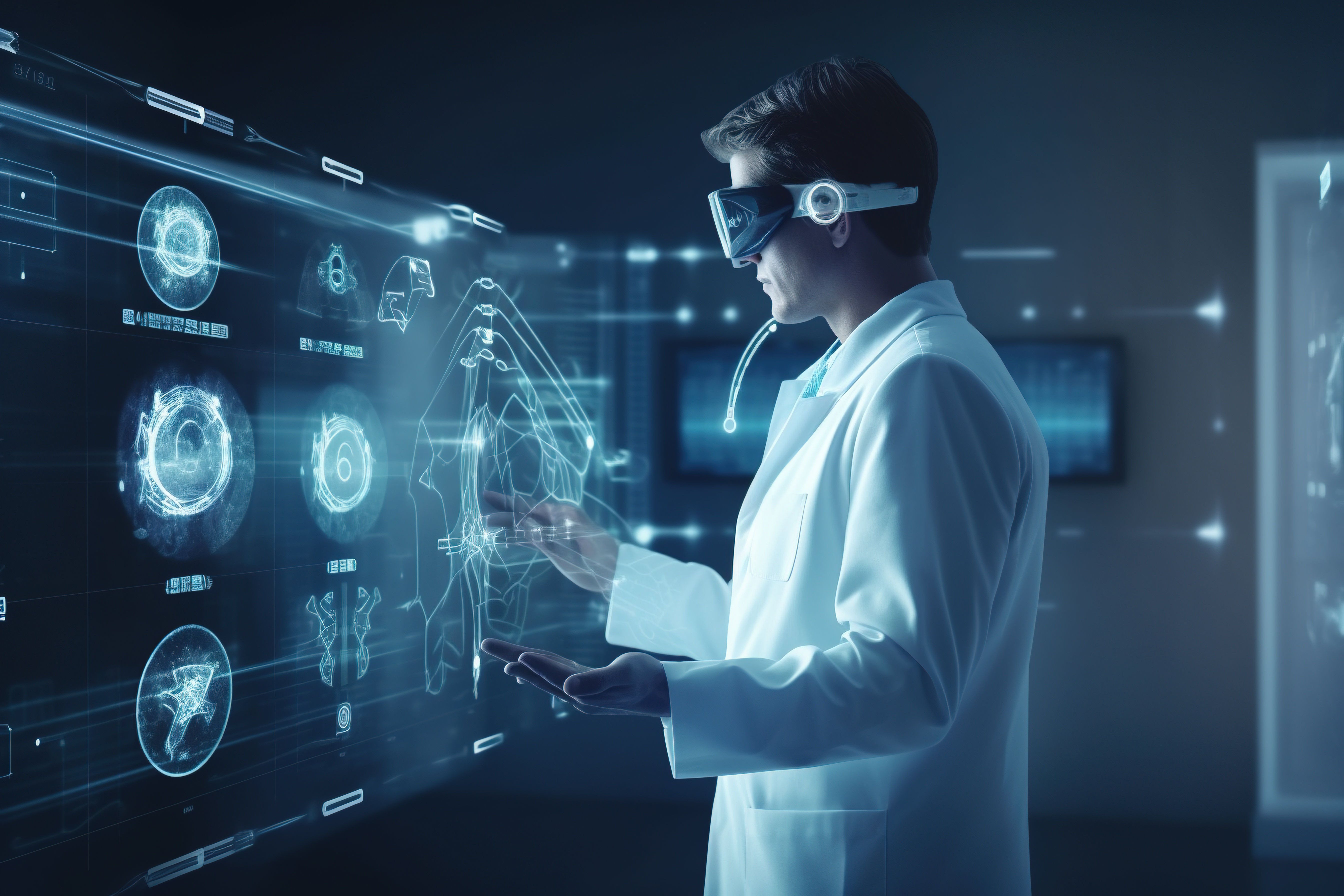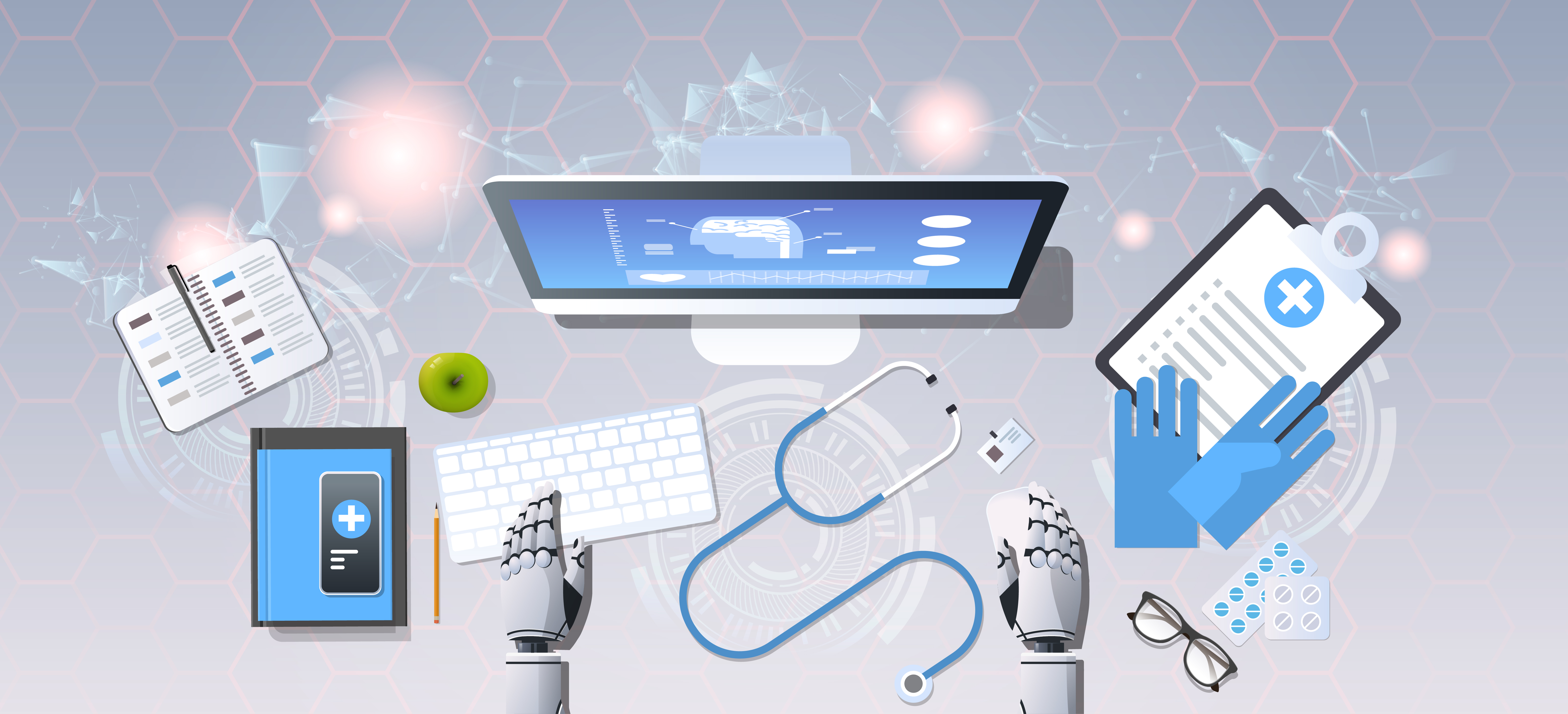
Artificial Intelligence (AI) is a prominent trend across various global sectors, and healthcare is no exception. Harnessing the immense power of artificial intelligence, numerous AI applications in healthcare have emerged to alleviate the burden on hospitals, enhance professional expertise, and improve clinical efficiency.
The increasingly widespread use of AI in healthcare holds promise for positive impacts on treatment and healthcare, especially in hard-to-reach areas such as rural or remote regions of developing countries. This addresses the scarcity of medical professionals and fosters innovation in the healthcare industry.
Let us explore what AI in healthcare is and the latest applications of AI in the era of Industry 4.0 together with VinBrain.

In 1956, Professor John McCarthy, the father of Artificial Intelligence (AI), defined the concept for the first time as using computers and technology to simulate intelligent behavior and reflective thinking equivalent to humans.
Today, AI in healthcare is a general term describing the application of machine learning algorithms and other cognitive technologies within the healthcare context. In simple terms, AI in healthcare involves using machines to analyze and act based on healthcare data, often aiming to predict specific outcomes.
Healthcare is one of the most crucial and focused sectors in the era of big data, where the application of AI in analyzing and utilizing healthcare data can be considered a life-changing issue, directly impacting millions of people globally every day. AI can support doctors, nurses, and other healthcare professionals in their daily tasks.
Moreover, AI applications can enhance preventive care services and quality of life by providing patients with more accurate and effective diagnoses and treatment plans. AI can play a vital role in global public health by predicting and monitoring the spread of dangerous infectious diseases through analyzing data from governments and health organizations, becoming a powerful tool against epidemics and pandemics.

From November 26 to 29, 2023, the world's leading Radiology forum, the RSNA 2023 Annual Conference in Chicago, USA, showcased modern research and education, providing access to the latest medical imaging technologies and AI applications. With nearly 700 leading exhibitors worldwide, RSNA 2023 witnessed the introduction of groundbreaking healthcare technologies with a potentially positive impact on millions globally. Notably, VinBrain, the first and only AI HealthTech startup in Vietnam, participated in the most significant global healthcare conference. Let us review some of the most notable applications from 2023-2024.
The rapid advancement of technology has led to an exponential increase in the volume of healthcare information to be accessed. Notably, medical data doubles every three years, posing a significant challenge for healthcare professionals to stay updated with new knowledge. It is estimated that a physician would need up to 29 hours a day to "read" all medical information.
The continuous growth of big data and sociodemographic and lifestyle data provides valuable but challenging-to-exploit information if not comprehensively analyzed. In response to this challenge, effectively utilizing artificial intelligence (AI) is considered the most efficient solution to coping with the vast amount of information in the healthcare field.
With Machine Learning and Natural Language Processing capabilities, AI systems like IBM Watson assist doctors in efficiently reviewing electronic health records and updating treatment guidelines from medical research. A study showed that 90% of Watson's recommendations were appropriate and completed in 40 seconds, marking a breakthrough for faster and more effective healthcare information processing.
Shortcomings in imaging diagnosis pose a severe threat to healthcare quality and safety. In the United States, an estimated 5.08% outpatient diagnostic error rate equals 12 million people annually, with half having the potential to cause harm. In response, Artificial Intelligence (AI) technology has become a crucial tool to enhance the quality of diagnostic processes, especially in X-ray imaging.
One notable product is VinBrain's Oncology Diagnosis and Treatment (D&T). This product can screen, detect early signs, and support cancer treatment, improving the efficiency of oncologists in the battle against liver and colorectal cancers – two of the world's top 10 deadliest and most diagnosed cancers.
This solution uses a novel method based on features of phased CT images for HCC screening. DrAid™ utilizes state-of-the-art techniques, including nnUnet, ConvNeXt, and attention mechanisms. Recent research on this method was published in the Nature Scientific Reports journal, showcasing the widespread use of AI for more accurate diagnosis and improving treatment decisions for complex diseases.
In 2023, Artificial Intelligence (AI) made its presence felt in formal work processes across various industries, particularly with the introduction of Generative AI like OpenAI's ChatGPT. Analysts predicted a shift in the workforce's focus toward "knowledge workers." In the medical field, numerous AI features emerged, ranging from environmental descriptions and task management to clinical decision support.
As electronic health records emerged, regulatory bodies initiated digital conversion programs to encourage the shift from paper to electronic records. The primary goal is to enhance interaction, quality, and safety in patient care.
Every clinic has computers or tablets containing extensive patient information across multiple platforms. Physicians prefer using AI-equipped systems to summarize information and make more critical decisions.
By highlighting tools, monitoring activities, and issuing alerts, AI-based surgical systems can propose personalized approaches for each patient's surgical needs while guiding and optimizing surgical processes. In endoscopic and robotic surgery, AI proves particularly effective with video displays capable of showing information or guidance from AI during surgery.

Dr. Tignanelli from the American College of Surgeons describes, "AI will analyze surgeries as they happen and assist surgeons in decision-making." For instance, AI can identify potential abnormal cell proliferation in endoscopic surgery. In robotic surgery, AI can perform simple tasks through robots, such as closing incisions or tying knots.
The question arises: Can AI or Robots entirely replace doctors? Most experts in AI and surgery using robots affirm that a fully AI-controlled surgical robot replacing human surgeons is impossible. Artificial Intelligence (AI) will continue to be effectively used to enhance the decision-making and performance of human surgeons.
One of the most promising applications of Generative Artificial Intelligence (Gen AI) in healthcare is personalized medicine. Personalized medicine considers each individual's unique genetic structure, environment, and lifestyle, aiming to improve the accuracy of diagnosis and treatment while reducing the risk of side effects.
Some potential applications of personalized medicine in the coming years include examining drugs, drug development, diagnosis, and treatment.
Innovative AI has the potential to revolutionize healthcare by improving the accuracy and effectiveness of diagnosis and treatment, making healthcare more efficient and cost-effective. However, it is crucial to accurately assess the ethical challenges of Gen AI before widespread deployment. As Gen AI technology advances, we can expect to see more innovative and transformative applications of AI in healthcare.
In 2023, Artificial Intelligence (AI) will assist hospitals and healthcare systems in predicting and diagnosing health risks early while providing valuable health data for organizations and research institutions. These organizations will then develop an AI-based healthcare ecosystem, connecting and communicating with patients, hospitals, healthcare professionals, family clinics, pharmaceutical companies, research organizations, and other sources. Such a comprehensive ecosystem can potentially optimize the organization and management of healthcare systems through the power of AI.
Artificial Intelligence has changed healthcare management in some organizations by connecting machine learning algorithms and new devices with complex hardware and software, creating a highly interconnected ecosystem.
By applying AI-managed data systems, Artificial Intelligence can lead healthcare management in a new direction, reaching new heights and positively impacting the global healthcare system.
Top